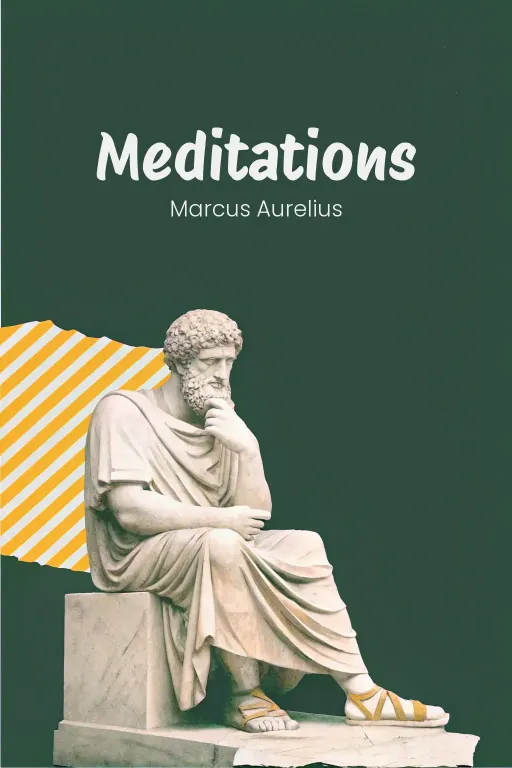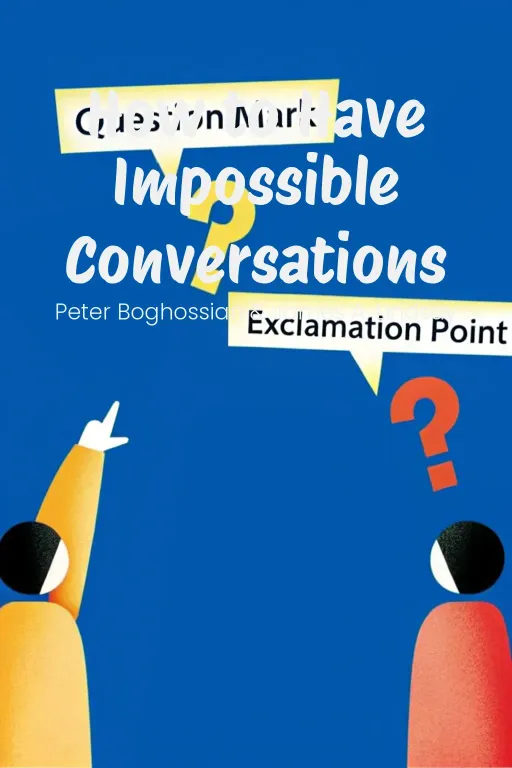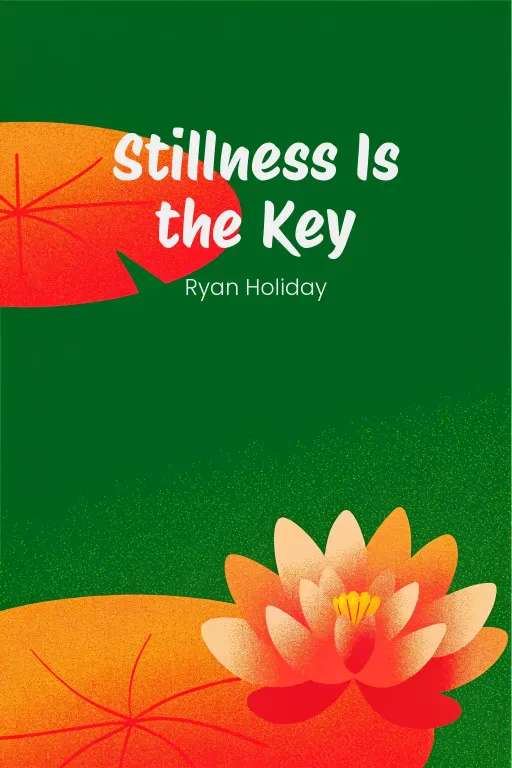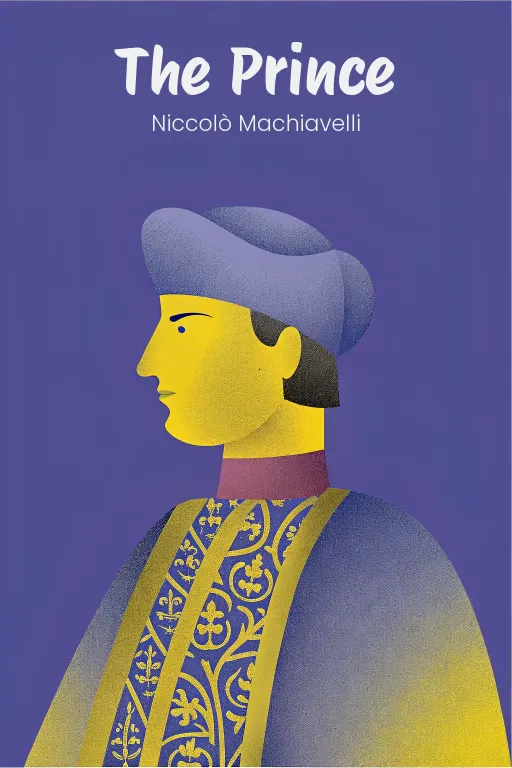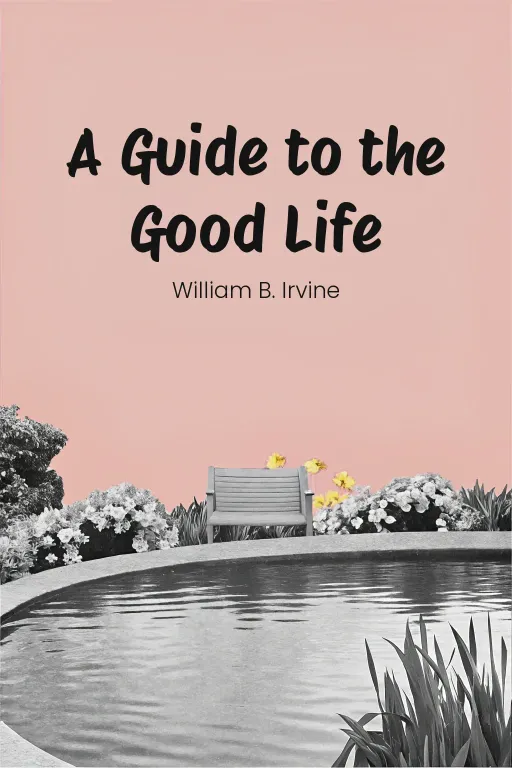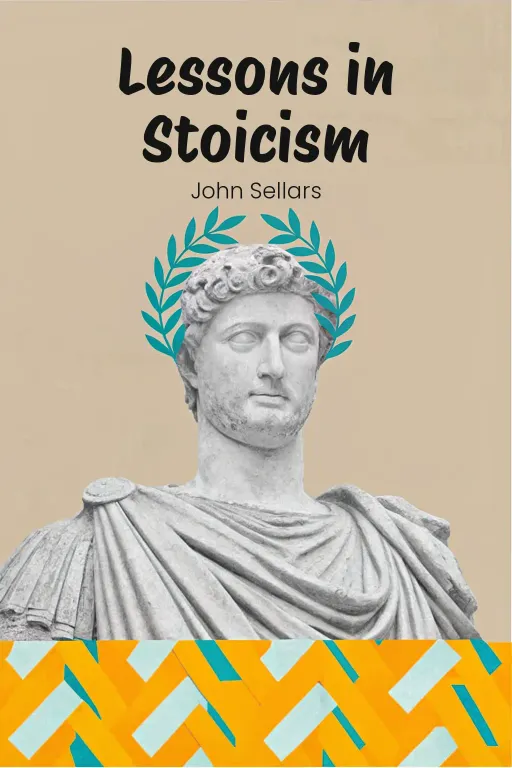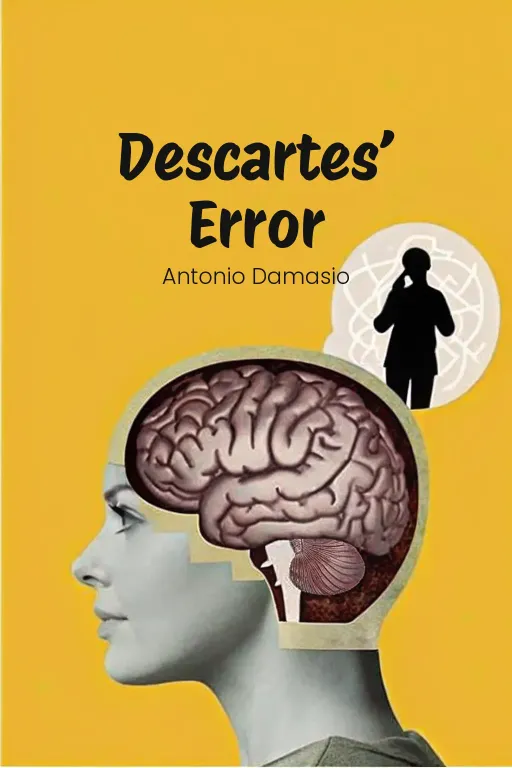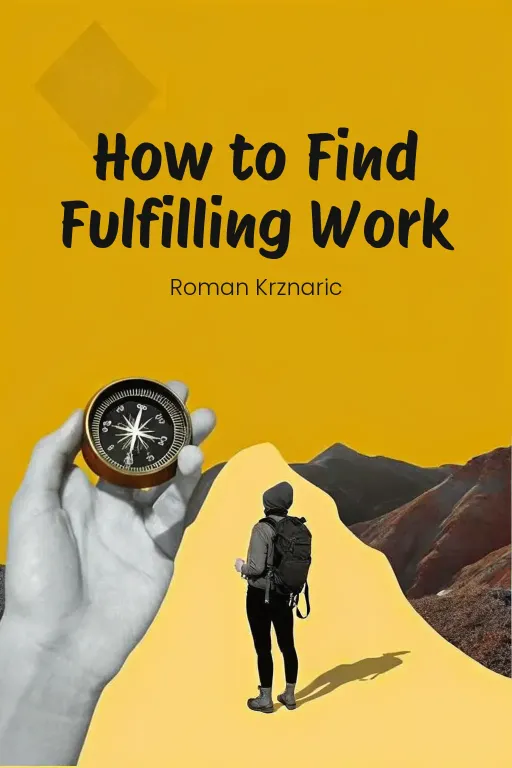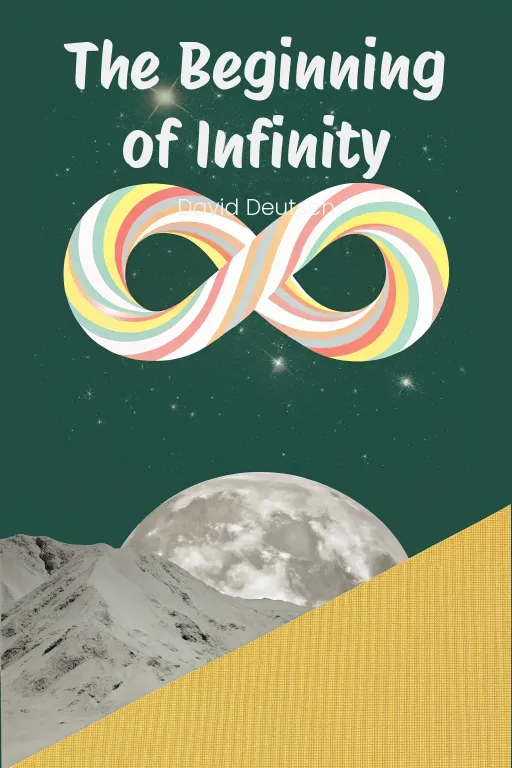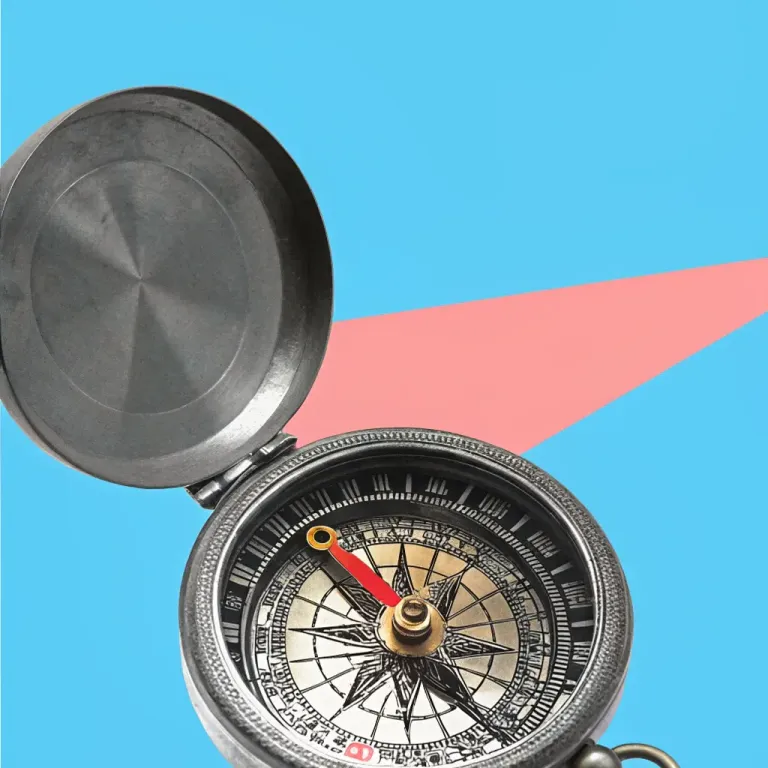
Find Your North: A Meaningful Life Map
Podcast by The Mindful Minute with Autumn and Rachel
A Philosophical Guide to Living
Find Your North: A Meaningful Life Map
Part 1
Autumn: Hey everyone, and welcome! Today, we're diving into something super fundamental: how to live a meaningful life. What if I told you that the answers to life's big questions have been around for centuries, just waiting for us to discover them? Rachel: Centuries, huh? So, we're talking about digging through old books and complicated philosophy? How's that going to help me deal with, you know, daily life—like traffic jams or impossible deadlines? Autumn: Well, that's where Luc Ferry's book, “A Brief History of Thought”, comes in. It’s a journey through the history of philosophy, showing us how people have grappled with things like death, ethics, and even love. It's like a compass, showing us how to think and, more importantly, how to live. Rachel: So, it's not just some dry academic stuff then? More like a survival guide with a philosophical angle? Okay, you have my attention. But if it's all abstract, I'm out. What's the real draw here? Autumn: That's the great thing about Ferry's book—he makes philosophy both understandable and relevant. We're going to look at three key things: first, how ideas have changed over time—with Stoicism, Christianity, and modern thinking all trying to answer life's biggest questions. Second, we’ll tackle the ethical problems of today, especially with technology and this whole "post-truth" world. And third, this fascinating idea about transcendence—how love might be the answer to our struggles. Rachel: Love as transcendence? Sounds beautiful, but a bit airy-fairy, no? Are you going to actually demonstrate to me that it works? Autumn: Exactly! That's what makes it so interesting, Rachel—every question leads us to deeper understandings. Ferry’s point is that philosophy isn’t just something you read about; it’s something you live, every single day. Rachel: Okay, I'm intrigued. Let's see if this Ferry guy can give us more than just theories. I need something practical, something I can use when life gets tough.
The Evolution of Philosophical Thought
Part 2
Autumn: Perfect! So, to really get this journey, let's start at the beginning – with the big thinkers in ancient Greece. This is where people started looking beyond myths and religion for answers, and began using rational thought. It's where the first questions about life, morality, and the universe were asked. Rachel: So, the Greeks were like, "Okay, enough with the drama from Zeus and Hera—we need some real answers, right?" Autumn: Exactly! They moved from saying, "It's the will of the gods," to asking, "What can the universe itself tell us?" That's where logos comes in. It's a key idea in Greek philosophy. For the early Stoics, logos was the logical principle that guides everything in the cosmos. They thought life wasn't just random stuff happening; there was a reason for everything. Rachel: I get the appeal of seeing the universe as this huge, rational system. But, we're humans – messy and emotional. How does this very organized concept help someone in their day to day life? Autumn: That’s a great question. The Stoics saw logos as more than just an abstract idea. It was a guide for living in harmony with nature. Think of it like this: A skilled carpenter doesn't fight the wood, they work with it to create something amazing. Stoics believed that by understanding and aligning with the natural order, we could find peace even when life gets tough. Rachel: That sounds kind of Zen. "Go with the flow," but without all the incense. Did they have actual practical advice? Because some of us are too busy to contemplate "natural order." Autumn: Oh, they were all about practical wisdom! A key Stoic idea is knowing what you can control and what you can't. Big feelings—like anger, fear, sadness—come when we fight things we can't change. Stoics changed that. They taught people to focus on what they can affect and let go of the rest. Epictetus, a Stoic philosopher, famously said, "It's not what happens to you, but how you react to it that matters." Rachel: Huh, that's pretty modern—like Epictetus could be on a self-help podcast. Autumn: Exactly! That’s why Stoicism is making a comeback these days. If you want to see Stoicism in action, though, look at Rachelus Aurelius. Rachel: The Roman emperor who was also a philosopher, right? I've heard of his Meditations, but I thought it was just rich-guy thoughts about battles and fancy robes. Autumn: Oh, not at all. Meditations is a personal journal filled with thoughts on how to lead a good, strong life—and it was written by a guy running an empire during wars and political chaos. He faced pressure that would break most people, but he used Stoic ideas to stay calm. For example, Rachelus wrote, "You have power over your mind, not outside events. Realize this, and you will find strength." Instead of stressing about things he couldn't control—like wars—he focused on his own mind and actions. Rachel: Wait a second. This emperor is running Rome, dealing with armies, arguing with senators, and he’s reminding himself not to panic? That's honestly pretty impressive. Autumn: It is, isn't it? It shows how philosophy became more than just thinking; it was a way to survive. Rachelus Aurelius shows how to be strong on the inside and be a good leader. But, as Stoicism became popular, it was challenged by something completely different: Christianity. Rachel: Ah, here’s the twist. From logical logos to turning logos into something personal, right? I guess this is when philosophy got religion involved? Autumn: Exactly. Early Christianity changed philosophy in a big way. For the Stoics, logos was an impersonal idea—like the universe's operating system. But for Christianity, as explained in the Gospel of John, logos became deeply personal. “In the beginning was the Word [Logos]…and the Word was God.” Rachel: And this "personal logos" is Jesus Christ? Autumn: You got it. The idea was pretty wild—it said that this divine order wasn’t some far-off force but a loving, present being as Christ. Before, people were good when they lived by the rules of the universe. Now, everyone was seen as special and valuable because of their relationship with a loving God. Rachel: So Christianity raised the stakes—less, “Follow the universe's rules,” and more, “You are loved." That’s, well, powerful. But did this clash with Stoic ideas of being independent and in control? Autumn: In some ways, yes. Christianity focused on trusting in God, instead of mastering yourself through logic. But there were some overlaps too. Justin Martyr is a great example. He started as a Stoic philosopher, but became Christian when he thought Stoicism was too distant from human emotion. He said Christianity—with a personal God—answered questions Stoicism couldn't. Rachel: So Justin thought Stoicism was too cold, like a set of instructions without any heart? Autumn: Precisely. For him and others, Christianity offered a different way to be great: love as the answer to life's big questions—not just logic, but a real connection with God and other people. Rachel: That's a big change, philosophically. It almost sounds modern. Like they were already dealing with human connection, individuality, and ethics—things we're still dealing with today. Autumn: Exactly why this change is so important. Philosophical thought doesn't happen in a bubble—it reflects what people need and what they're struggling with. As Christianity became popular, it started new debates, like individual worth and ethics, which became even more important later, especially during the Enlightenment.
Ethical Challenges in Modernity
Part 3
Autumn: This historical foundation “really” sets the stage for examining how these philosophical shifts have shaped the ethical challenges we face today. Rachel, this is where it gets interesting. Modernity throws us into ethical dilemmas that Stoicism and Christianity couldn't have imagined, especially with Nietzsche questioning the core of humanism and technology rapidly changing everything. Rachel: Okay, so we're diving into the chaos of the modern world? I guess we're talking less about ancient emperors and more about surviving the 21st century without a complete existential meltdown. Autumn: Precisely. We're tackling the challenges that define our present moment, “really” framed by two key points. First, Nietzsche's critique of traditional morality – he basically dismantles the comforting frameworks we used to rely on, leaving humanity feeling a bit adrift. Second, the rapid pace of technological progress. It solves problems, sure, but often leaves us morally unprepared for the fallout. Both force us to rethink how we define meaning and morality in this ever-changing landscape. Rachel: Sounds like a boatload of issues. So, we're playing existential Jenga; you pull one philosophical block, and the whole tower of meaning might just collapse. Let's start with Nietzsche. Why is it he's always portrayed as the grim reaper of philosophical optimism? Autumn: Nietzsche is challenging, for sure, but his critiques are incredibly insightful. He saw that the Enlightenment's humanist ideals – you know, placing reason and humanity at the center of morality – rested on pretty shaky ground. He famously declared the "death of God," which wasn't just about religion disappearing, but about the collapse of absolute truths. Without God or divine morality, he argued, we lose the foundation upon which moral systems were built, leaving us with this “really” dangerous void where meaning and purpose used to be. Rachel: So, Nietzsche walks in and says, "Hey everyone, God's dead. Morality? Probably a scam. Have a nice day?" That's… uplifting. Autumn: His goal wasn't to plunge humanity into despair – though I admit, it sounds bleak. He was warning us about nihilism, this existential pit where life feels meaningless. Humanism inherited its moral code from religion, but Nietzsche believed it failed to replace divine truths with anything equally solid. So, what are we left with? Outdated values trying to stay afloat in a sea without anchors. Rachel: Right, but isn't humanity adaptable? Can't we just invent new truths if the old ones crumble? Like a software update for morality? Autumn: That's actually closer to Nietzsche's solution than you might think! He wasn't saying all hope was lost. He introduced concepts like the "Übermensch," or "Overman," and the idea of eternal recurrence to help us build new values that are authentically rooted in our experiences, rather than external absolutes. Let's talk about eternal recurrence – it's this thought experiment where you imagine living your life, exactly as it is, on repeat forever. Rachel: On repeat? Forever? Look, there are some TV shows I could watch endlessly, but my life? That's… a commitment. What's Nietzsche getting at with this? Autumn: The idea is to confront the choices you've made and fully embrace your life as it is. If you had to live this exact existence for eternity, would you find meaning in it? Or would it highlight parts of your life that desperately need changing? It's a call to authenticity and self-creation. Owning your existence, flaws and all, instead of looking for external justification. Rachel: So, he's kind of forcing a mental reckoning, asking, "Are you truly living the life you want, or are you just coasting?" That's… intense. Does Nietzsche leave room for regrets, or is the goal to love all your mistakes, too? Autumn: The goal is to make peace with all of it – even the pain, the failures, the missed opportunities. Nietzsche isn't offering a fairy-tale where everything suddenly feels perfect. He's saying, "This is your life – stop wishing it were something else and start shaping it into something worth affirming." It's total ownership of your existence. Rachel: I'm starting to see why Nietzsche appeals to people who hate having their hands held when facing life's tough questions. But let’s switch gears. Nietzsche might help individuals rethink their purpose, but what happens when we zoom out, say, to an entire society drowning in tech and existential dread? Does philosophy even stand a chance against AI, climate change, and endless doom-scrolling on social media? Autumn: That's where we pivot to modernity's other big challenge: technological progress. We live in an age where innovation happens faster than our ethical thinking can keep up. Martin Heidegger, another deep thinker, argued that technology shifts our focus away from asking big, meaningful questions about life. Instead of asking what kind of world we want to create, we fixate on what's possible to create just because we can. Rachel: Ah, the classic "just because we can, doesn't mean we should" argument. Honestly, that feels scarily relevant when we look at social media or, I don't know, nuclear weapons. What's the biggest ethical mess that technology has created? Autumn: Let's take climate change. It perfectly shows the paradox of technological progress. On one hand, our industrial and technological advancements have caused huge environmental damage – fossil fuels powering our economies, deforestation, mass production – it's devastated Earth's ecosystems. On the other hand, we also have the solutions to fight this crisis – renewable energy, green technology, and scientific innovations. Yet, international efforts to address climate change, like the Paris Agreement, are constantly undermined by political self-interest and short-term economic growth. Rachel: So, it's not just technology. It's the inertia of human behavior, politics, and economics that complicates everything. We have the answers, but we can't seem to implement them. Autumn: Exactly. And Heidegger would argue that this is what happens when societies obsess over "means" instead of "ends." Technology is driven by efficiency and productivity, but it rarely forces us to pause and ask whether the goals we're chasing are morally or existentially meaningful. Rachel: So, we're spinning our wheels faster and faster, but we might not even like where we're headed. It's like being on a treadmill you can't turn off, constantly trying to outpace disaster. Autumn: That's why philosophy remains so important. If Nietzsche tells us we need to reclaim our individual agency, then Heidegger tells us we need to reclaim our collective responsibility. We have to ask what progress is for and build strategies—both personal and institutional—that direct technology and innovation toward genuinely ethical outcomes. Rachel: Yeah, that’s a tall order, but I can see the need to step back philosophically. Without it, it seems like we'll just keep making bigger, shinier versions of the same mess. So, Autumn, how do these thinkers suggest we turn this sinking ship around?
Transcendence and Human Connection
Part 4
Autumn: That's where horizontal transcendence comes into play. These challenges naturally lead us to consider how transcendence and human connection can offer solutions in today's fragmented world. What’s fascinating is how it reframes transcendence—not as some vertical pursuit of the divine, but as something rooted in our shared humanity. It invites us to focus on relationships, empathy, and the structures we create to nurture unity, even amid conflict and chaos. Rachel: Horizontal transcendence? Is this just a fancy way of saying, “Treat others the way you want to be treated”, Autumn? Autumn: Well, it’s both simpler and deeper than that. Horizontal transcendence emphasizes that meaning arises through connections and shared experiences, rather than through abstract divine pursuits. It's grounded in how we treat one another and the principles we uphold in our interpersonal and societal frameworks. A great example? Henri Dunant, the founder of the Red Cross. Rachel: Ah, Dunant! Didn't he start the Red Cross after stumbling upon some devastating battlefield aftermath? Remind me what exactly happened there. Autumn: Absolutely. In 1859, Dunant witnessed the horrific aftermath of the Battle of Solferino. Tens of thousands of soldiers—both victors and losers—lay wounded and dying on the battlefield, without any hope of aid. Dunant was moved not by which side they fought for, but by their vulnerability as human beings. This experience led him to write A Memory of Solferino and inspired the creation of the Red Cross and the Geneva Conventions, which protect wounded soldiers and civilians in times of war. Rachel: So, he saw former enemies as just vulnerable individuals and thought, "Forget allegiances, we need a system where humanity comes first." That sounds… almost utopian. Right? Autumn: It’s a striking example of horizontal transcendence in action. Dunant embodied the principle that human suffering transcends borders, ideologies, affiliations, you name it. His work institutionalized the idea that protecting human dignity is paramount, setting a framework that still defines global humanitarian efforts. Rachel: But was this just Dunant being an exceptionally virtuous person, or does this reflect some deeper shift in how we think about ethics? I mean, where does this concept of shared humanity even come from? Autumn: That's a great question, and it ties back to how philosophies of transcendence evolved. Humanitarianism draws inspiration from religious principles—like Christianity's emphasis on the inherent value of every individual—but translates them into a universal, secular framework. Take the Universal Declaration of Human Rights, for example. It reflects the belief that dignity and equality are sacred not because a deity proclaims it, but because we recognize it as fundamental to coexistence. Rachel: A secular spin on the sacred, huh? But what's stopping someone from saying, "Why should I care? What's in it for me?"—especially in today's individualistic world? Autumn: That’s precisely why these frameworks are critical. They create shared rituals and norms that encourage us to prioritize collective well-being. The Geneva Conventions codify how to treat people with dignity in war zones, essentially making compassion a rule, not a choice. And on a personal level, embracing the principles of horizontal transcendence involves cultivating empathy. Rachel: Okay, “cultivating empathy” sounds like something from a training seminar. How do you actually make it happen in real life? Autumn: It’s less about vague sentimentality and more about concrete actions. Empathy means stepping into another person’s perspective and letting that inform how you respond. Before Dunant started the Red Cross, his act of compassion involved organizing volunteers to care for the wounded, regardless of their affiliation. That was empathy put into action - acknowledging suffering and mobilizing to alleviate it. Rachel: So, empathy isn't just thinking, "That must be tough"—it's asking, "What can I do to help?" Got it. But that's on a grand scale. Is horizontal transcendence something the average person can apply in their everyday life? Autumn: Absolutely. It's found in small, daily acts—active listening, showing compassion when it’s easier to ignore someone's pain, or offering help without expecting anything in return. These moments of human-centered engagement remind us that transcendence doesn’t have to mean grand gestures. It's the accumulation of ordinary acts of love and care that shape our most meaningful relationships. Rachel: So, essentially, we're rediscovering the sacred in the mundane. But here's my question: Where does this approach stand, when things get really tough? Like, say, during a global crisis where everyone's first instinct is to look out for themselves? Autumn: That's exactly the point of systems like the Red Cross or the Universal Declaration of Human Rights. They're designed to uphold dignity, even in extreme circumstances. These institutions act as shared rituals, reminding us of our interconnectedness when things fall apart. But it also requires individuals to take responsibility for this kind of connectivity. Rachel: I see your point. It's easy to lose hope when the big picture looks grim. Still, there’s one thing that is bugging me—if this horizontal transcendence works so well, why does humanity seem to keep circling back to the same old problems? War, inequality, greed—it’s not like they’re on the decline. Autumn: That's a fair critique. Philosophical ideas, no matter how profound, don’t eradicate human complexity, and that’s the challenge. Horizontal transcendence isn’t about creating utopia; it’s about recognizing our shared struggles and working toward incremental progress. It’s a continuous effort rather than a final solution. Rachel: So, it’s less about solving the human condition and more about managing it, one empathetic interaction at a time. Alright, I'll admit, redefining transcendence this way feels surprisingly practical, but also inspiring. Henri Dunant might have been onto something.
Conclusion
Part 5
Autumn: So, today we’ve really taken a trip, haven't we? We started with the ancient Greeks searching for order in the cosmos, then moved to Christianity's radical idea of personal love, and on to Nietzsche challenging us to create our own values. Finally, we arrived at the modern challenge of finding meaning in ethical chaos. When you look at it all together, philosophy is constantly evolving, trying to tackle life's biggest questions. And somehow, it always leads us back to that simple, yet profound idea of human connection. Rachel: Exactly. So, it sounds like all of this philosophy isn’t just about some old dude sitting on a mountaintop, lost in thought. It’s about dealing with life's uncertainties, one decision at a time. Whether it’s Rachelus Aurelius reminding us to stay calm when things get tough, or Henri Dunant proving that compassion knows no limits, these lessons actually feel... usable, right? Autumn: Totally. And as Luc Ferry so clearly points out, philosophy isn't just a guide for understanding the world—it’s a practical toolkit for living in it. It reminds us that, even with all the chaos life throws at us, connection and resilience aren’t just nice ideas; they're genuinely the way forward. Rachel: Right. So, whether we're trying to understand philosophy's big ideas or just dealing with everyday annoyances, the real task is to live with intention. Maybe start small, you know? Instead of wondering what the world owes you, ask yourself what meaning you can find or create in it, right here, right now. Autumn: Beautifully said. Philosophy isn't the ultimate answer; it's an invitation to keep asking the right questions. So, listeners, what’s the next question you're going to ask?
